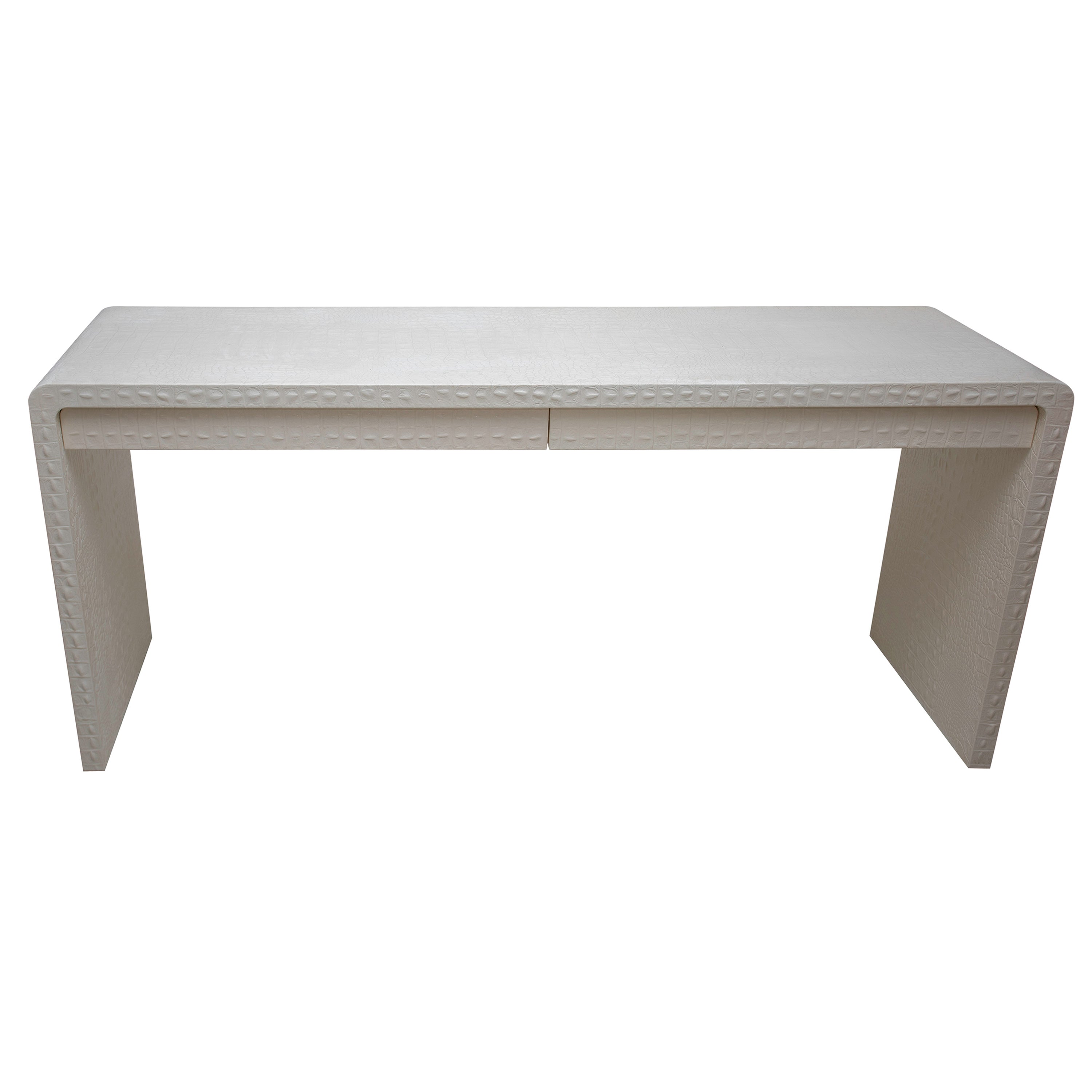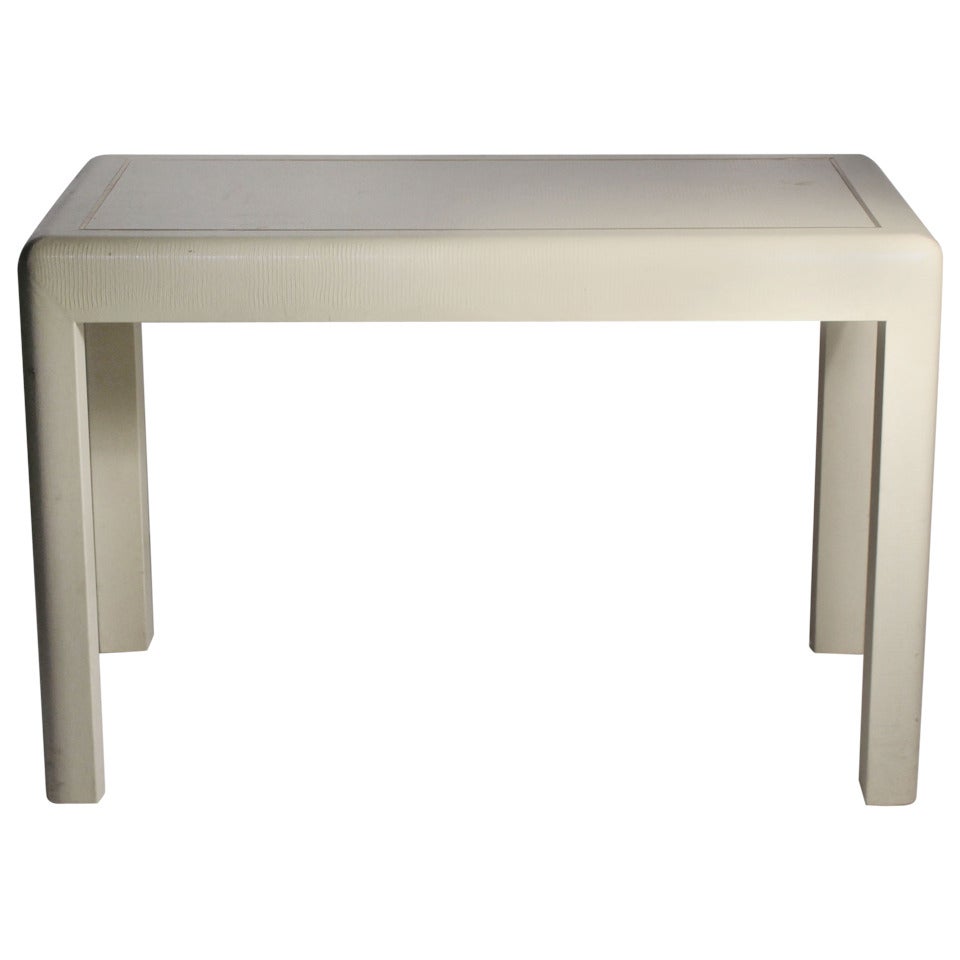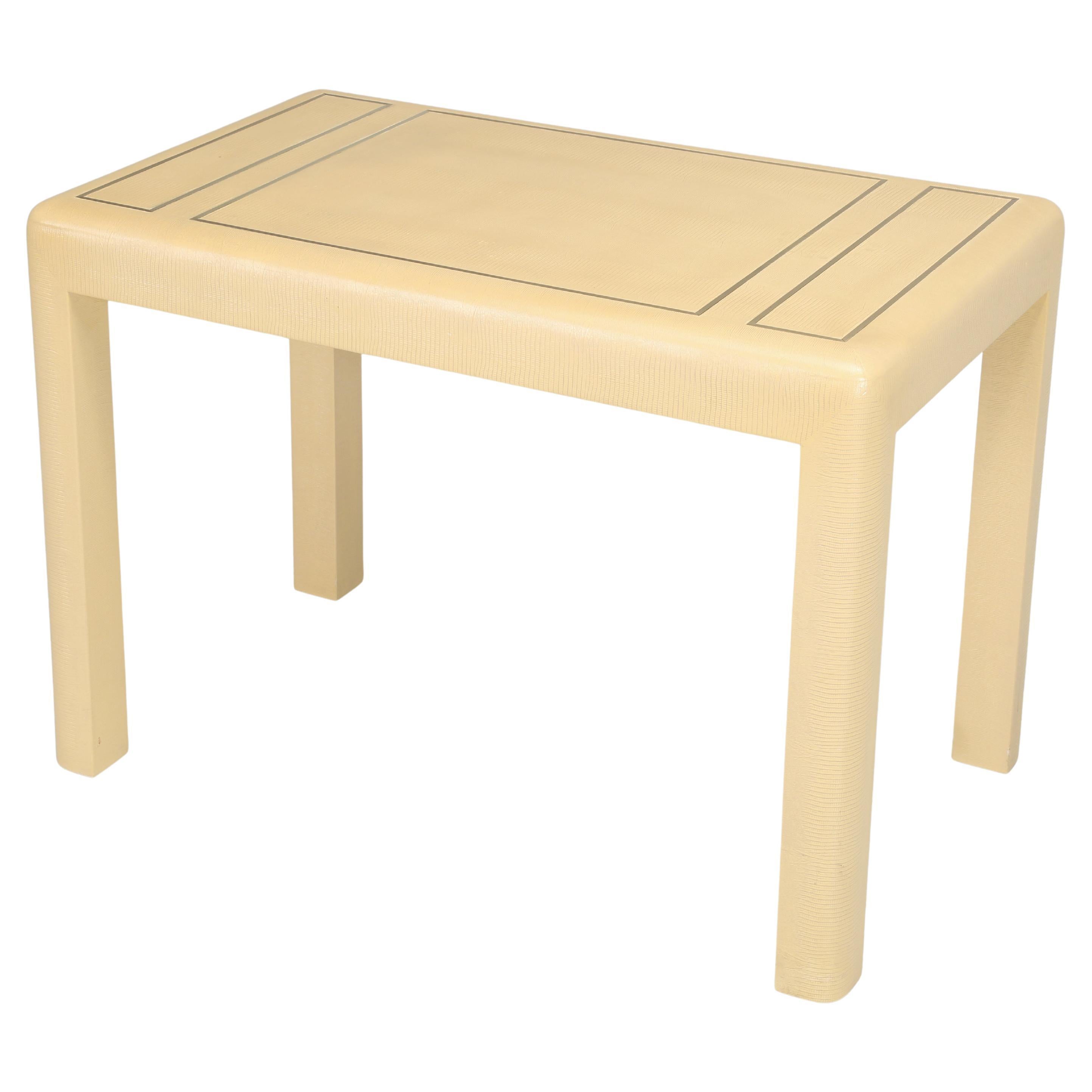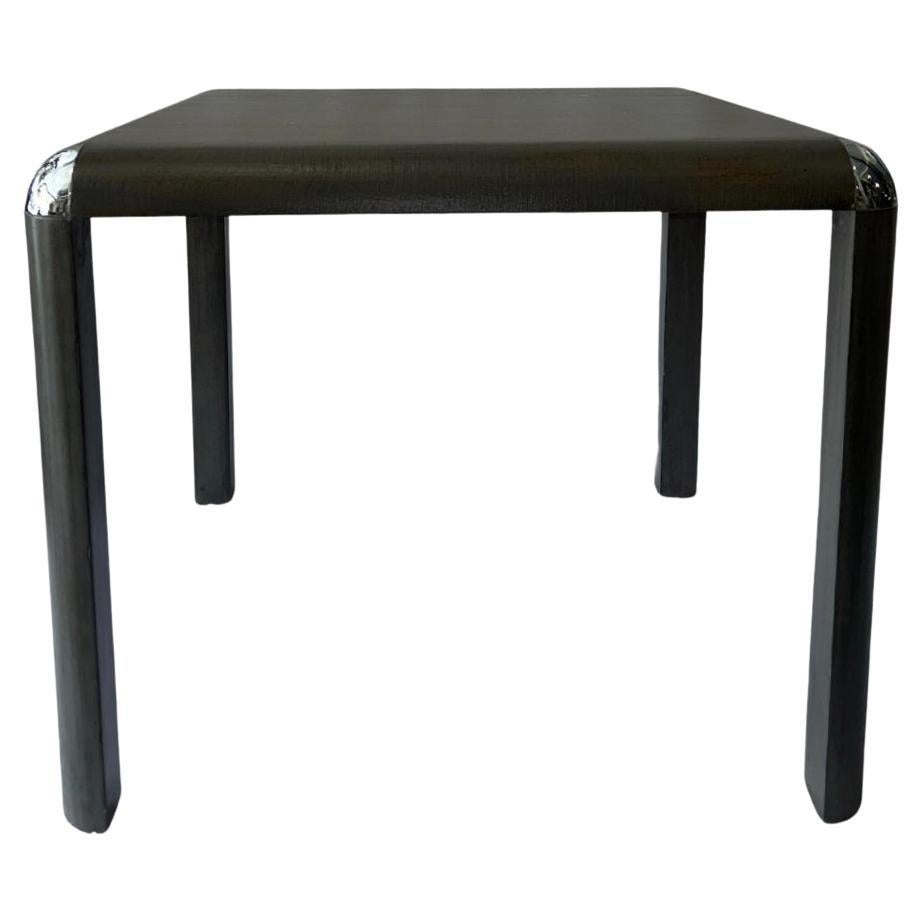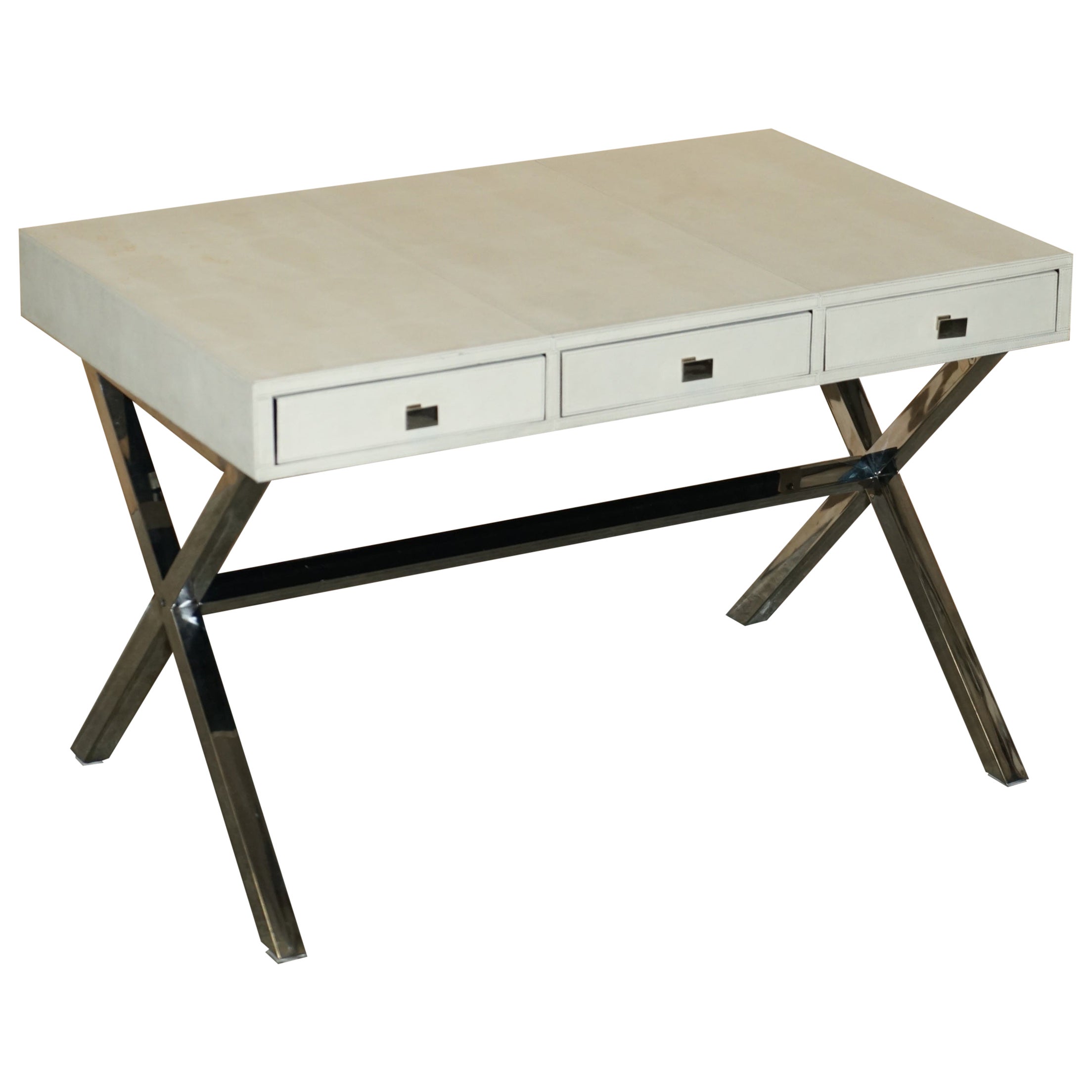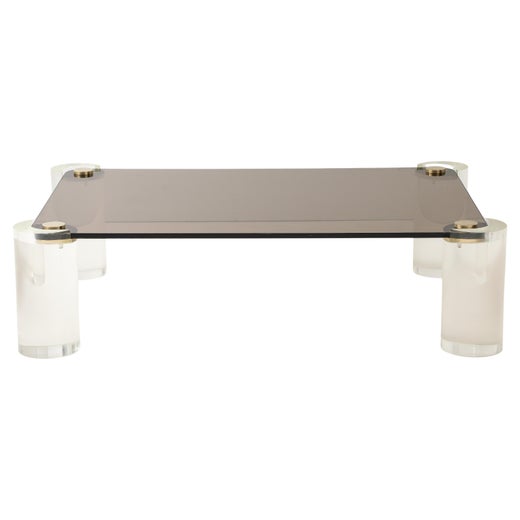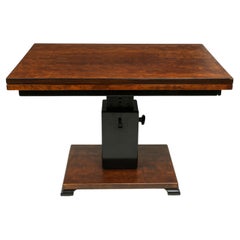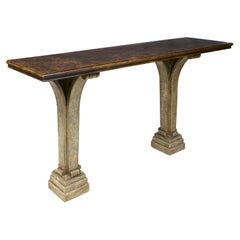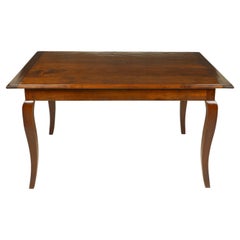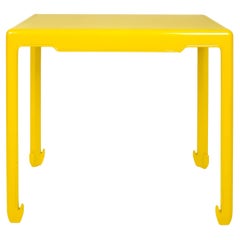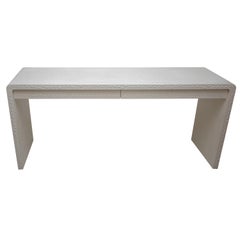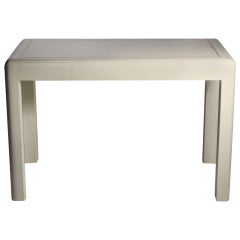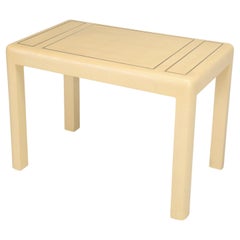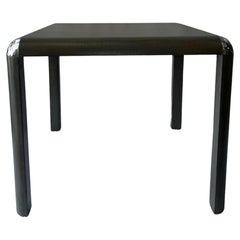Rare Karl Springer Signed Faux Crocodile Desk or Dining Table
About the Item
- Creator:Karl Springer (Maker)
- Dimensions:Height: 29 in (73.66 cm)Width: 40 in (101.6 cm)Depth: 66 in (167.64 cm)
- Style:Post-Modern (Of the Period)
- Materials and Techniques:
- Place of Origin:
- Period:
- Date of Manufacture:1973
- Condition:Wear consistent with age and use.
- Seller Location:New York, NY
- Reference Number:1stDibs: LU107581629012
Karl Springer
The Berlin-born, New York–based designer Karl Springer brought a chic, high-fashion sensibility to his coffee tables, mirrors, Lucite lamps and other furnishings. During his heyday in the 1970s, Springer’s work was a favorite of the glamour set, who enjoyed the novelty of pieces finished in rich and striking materials that ranged from exotic hides and skins to lacquer and chromed metal.
In a sense, Springer was a pre-postmodernist. Much as the dull, safe, corporate sameness of late 20th-century modernism prompted Ettore Sottsass, Michael Graves and others to explore new and provocative structures and materials in design and architecture, so, too, was Springer driven to enliven his creations with fresh and alluring energy and sleekness.
Springer came to New York in the late 1950s and found work arranging window displays at the department store Lord & Taylor. He had studied bookbinding in Germany, and, using his meticulous skills, he began crafting desk accessories wrapped in leather as a sideline. These pieces were sold in luxury stores like Bergdorf Goodman and drew a sophisticated clientele that included the Duchess of Windsor.
By 1965, Springer had established his own Manhattan atelier. It was Pierre Scapula, decorator to Jackie and Aristotle Onassis, who spotted Springer's disco-era Onassis chairs — which didn't yet have a name — first commissioned for a private residence in Acapulco, on the floor of the designer’s East 61st Street showroom. Jackie ordered barstools for the couple’s yacht, the Christina O, and dining chairs for their house on the Greek mainland.
At the time of his death, Springer had showrooms as far afield as Los Angeles, Tokyo and Munich.
The chairs, tables, credenzas and other furniture forms Springer created are generally simple, but substantial, and often have robust, rounded lines. The appeal of his work lies in Springer's insistence on exacting construction and, above all, his eye for unusual materials and finishes.
Springer employed Lucite, brass, and gunmetal along with chromed and polished steel, and revived exquisite finishes rarely seen since the days of Art Deco masters such as Émile-Jacques Ruhlmann and Jean-Michel Frank: shagreen (a type of sharkskin), python, goatskin, bone, horn, and lacquered parchment, as well as fabrics that include batik prints. Made of such materials, Springer’s work is by its very nature flamboyant and eye-catching: a suite of pieces will astonish, and an artfully placed side table in exotic hide will add a surprising spark.
Find a collection of vintage Karl Springer furniture today on 1stDibs.
- ShippingRetrieving quote...Shipping from: New York, NY
- Return Policy
More From This Seller
View AllVintage 1930s Swedish Modern Dining Room Tables
Metal
Late 20th Century Steampunk Console Tables
Wood, Paint
Antique 19th Century French Louis XV Farm Tables
Cherry
20th Century Ming Console Tables
Wood, Lacquer
Antique 1790s English George III Drop-leaf and Pembroke Tables
Brass
Antique 19th Century British Chinese Chippendale Center Tables
Mahogany
You May Also Like
Vintage 1970s American Tables
Leather
20th Century American Mid-Century Modern Desks and Writing Tables
Wood
Vintage 1970s American Mid-Century Modern Tables
Brass
Vintage 1980s American Mid-Century Modern Game Tables
Metal
Late 20th Century American Console Tables
Leather
20th Century English Art Deco Desks and Writing Tables
Chrome
